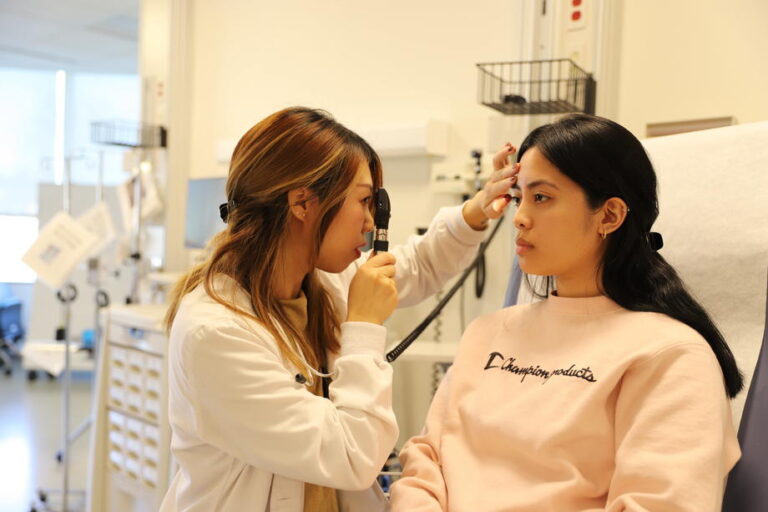Do you want to become a doctor but don’t know how to get there? A common misconception is that students must be “pre-med” before attending undergraduate school, but there are many routes you can take to get into medical school.
Not only do many colleges and universities not even offer a pre-med major, but more and more medical schools are seeking applicants from diverse backgrounds. The public health field offers these unique training courses, including specialization in public health, community health, global health, nutrition, and more.
Read on to learn more about the specifics of a public health degree, why getting a public health education is a good start to medical school, and the best pre-med degree option available to you at George Mason University.
What is public health?
Public health promotes and protects the health of all people and their communities. This scientific and evidence-backed field brings together many different careers and professionals all working toward the same goal: educating people on how they can stay healthy and avoid illness.
Rather than viewing health care as treating people who are already ill, public health aims to prevent and empower the public by giving them the tools to maintain their own health and safety. Let’s take a look at why the public health field is a great launching pad for medical school.
Why study public health as a pre-med?
As medicine moves toward a more proactive mentality, doctors are focusing on prevention and keeping patients healthy, rather than treating patients who are already sick. This new trend is accompanied by an increased demand for competent doctors in the field of public health.
Medical schools seek diversity in their student populations. They want to recruit students who come from unique backgrounds and can see medicine and how we treat the public from different perspectives. This shift in the medical field could be a contributing factor to the fact that many colleges are seeing more pre-med students studying majors such as public health and humanities, rather than traditional science majors, like chemistry and biology.
Additionally, the Medical College Admission Test (MCAT) emphasized psychology, psychosocial dimensions of health, and medical ethics – topics covered in public health education.
Does Mason offer a pre-med program related to public health?
Mason offers a Bachelor of Science in Community Health with a concentration in Clinical Sciences as a pre-medical program option focused on public health.
In the Community Health program, you will acquire the skills and abilities to develop, apply and evaluate evidence-based approaches to improve public health. You will explore all aspects of public health, including community health, global health, health education, health promotion, advocacy, program planning and epidemiology.
The Clinical Sciences concentration can prepare you for graduate clinical training in several health professions, such as: medicine, dentistry, nursing, optometry, occupational and physical therapy, and pharmacy. This concentration provides the flexibility to design your program to meet the prerequisites of these programs.
Upon acceptance to the BS in Community Health program at Mason, we encourage all students interested in medical school to speak with their advisor about the best path for them.
Public Health in Mason
At Mason, public health is an interprofessional field. This means that students are prepared for a variety of pathways within a single specialization, including preparation for medical school. We offer a program focused on evidence-based interdisciplinary research and practice, social determinants of health, and leadership development.
Students also have many hands-on learning opportunities and gain a variety of real-world experiences that expand their knowledge in many different areas of healthcare and public health. As a result, our graduates are equipped with problem-solving and leadership skills to address public health and healthcare issues in every corner of the world.
Learn more about our College of Public Health programs and how our interprofessional approach and commitment to inclusive excellence will prepare you for success.
Read about Safa Yosufzaiwho intends to use her degree in community health to become a doctor.
